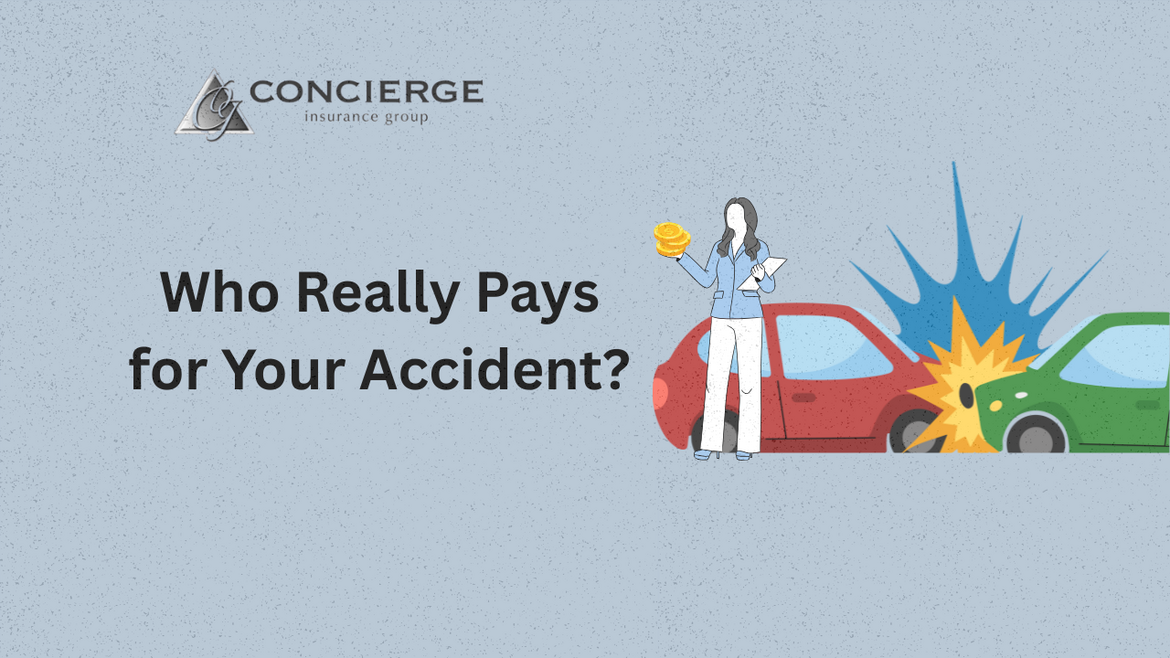
Think your insurance company paid your accident claim out of pocket?
And if they got their money back, why did your premium still increase?
In this article, you'll learn how subrogation really works, how it affects your wallet, and why your current policy may leave you exposed.
We will cover:
-
What subrogation is and why insurers profit from it
-
How it impacts your rates even when you're not at fault
-
When it is smarter to file with someone else’s insurance
-
How to protect yourself through better coverage choices
By the end, you will understand why reviewing your policy today could save you thousands in the future.
What Is Subrogation and Why Should You Care?
Subrogation allows your insurance company to recover the money they paid for your claim by pursuing the at-fault driver’s insurer.
That might sound helpful, but here is the catch.
Even if your insurer recovers every dollar, you may still be paying the price through higher premiums.
When your policy is not structured to protect you against the hidden costs of subrogation, you are at risk of paying more, waiting longer, and recovering less.
Why Insurers Love Subrogation and How They Profit
Subrogation helps insurers look generous when paying out claims quickly, while quietly collecting the money back later. But it is more than just a convenience—it is a business model.
Here is how they profit:
1. They Recover More Than They Paid
-
Pay you twenty-five thousand dollars for a totaled vehicle
-
Recover twenty-five thousand dollars from the at-fault party’s insurer
-
Sell the vehicle for salvage at five thousand dollars
-
Profit: five thousand dollars plus your rate increase
2. They Add Interest and Legal Fees
They charge for administrative fees, legal expenses, and interest—and keep it all.
3. They Raise Rates Regardless
Even if they recover every penny, your premium may go up due to claim frequency.
4. They Shift Costs Internally
If both drivers are insured with the same company, the insurer transfers money between departments and raises rates for both policyholders.
When Subrogation Creates Problems for You
1. Your Rates Go Up Even When You Are Not at Fault
Not-at-fault claims still count against you. One driver in Alpharetta had three rear-end accidents in two years and saw a thirty-five percent increase in premiums, even though none were his fault.
2. Your Deductible Refund Takes Months or Longer
It may take twelve to twenty-four months before you see your deductible again, if you receive it at all.
3. You May Never Get Your Deductible Back
If your insurer recovers less than they paid, they get reimbursed first. You may get nothing.
4. You Could Be Sued If Underinsured
A Georgia driver with minimum coverage caused an accident with eighty-five thousand dollars in damages. His insurer paid twenty-five thousand, and the remaining sixty thousand was collected directly from him through wage garnishment over seven years.
When Not to Use Your Own Insurance
Situation: Minor Damage and Clear Fault
Filing with your own insurer means paying a deductible and likely seeing a rate increase. Filing with the at-fault party’s insurer means a quicker payout and no deductible.
Situation: Uninsured At-Fault Driver
If you have uninsured motorist property damage coverage, it usually includes a lower deductible and fewer consequences. If not, you are more exposed.
Situation: Liability in Dispute
Let your insurer investigate and handle subrogation. Without strong coverage, you remain vulnerable to delayed recovery, higher costs, and denied claims.
How to Minimize Subrogation Risk
Provide Complete Evidence
Photos, police reports, and witness statements can help your insurer build a strong case and speed up your deductible reimbursement.
Never Settle Privately After Filing a Claim
If you accept money from the at-fault party after filing with your insurer, you may block your insurer’s ability to recover—and they may pursue you directly.
Follow Up Regularly
Subrogation can be slow. Call every thirty to sixty days to check status.
Consider a Personal Attorney for Major Claims
Your insurer only recovers what they paid. An attorney can pursue pain and suffering, lost wages, and more.
Your Policy Is the Real Problem or the Real Protection
Your coverage determines how subrogation impacts you. A weak policy can leave you with:
-
No coverage for uninsured drivers
-
High out-of-pocket costs
-
Long delays and little recourse
-
Personal liability in serious accidents
A strong policy can keep you protected and in control. Most drivers do not realize this until it is too late.
Get a Quote Today and Protect Yourself Tomorrow
You do not have to be a legal expert in subrogation.
You just need the right policy in place to protect your finances.
Let us review your policy together, explain where you are vulnerable, and help you build a plan that puts your interests first.

